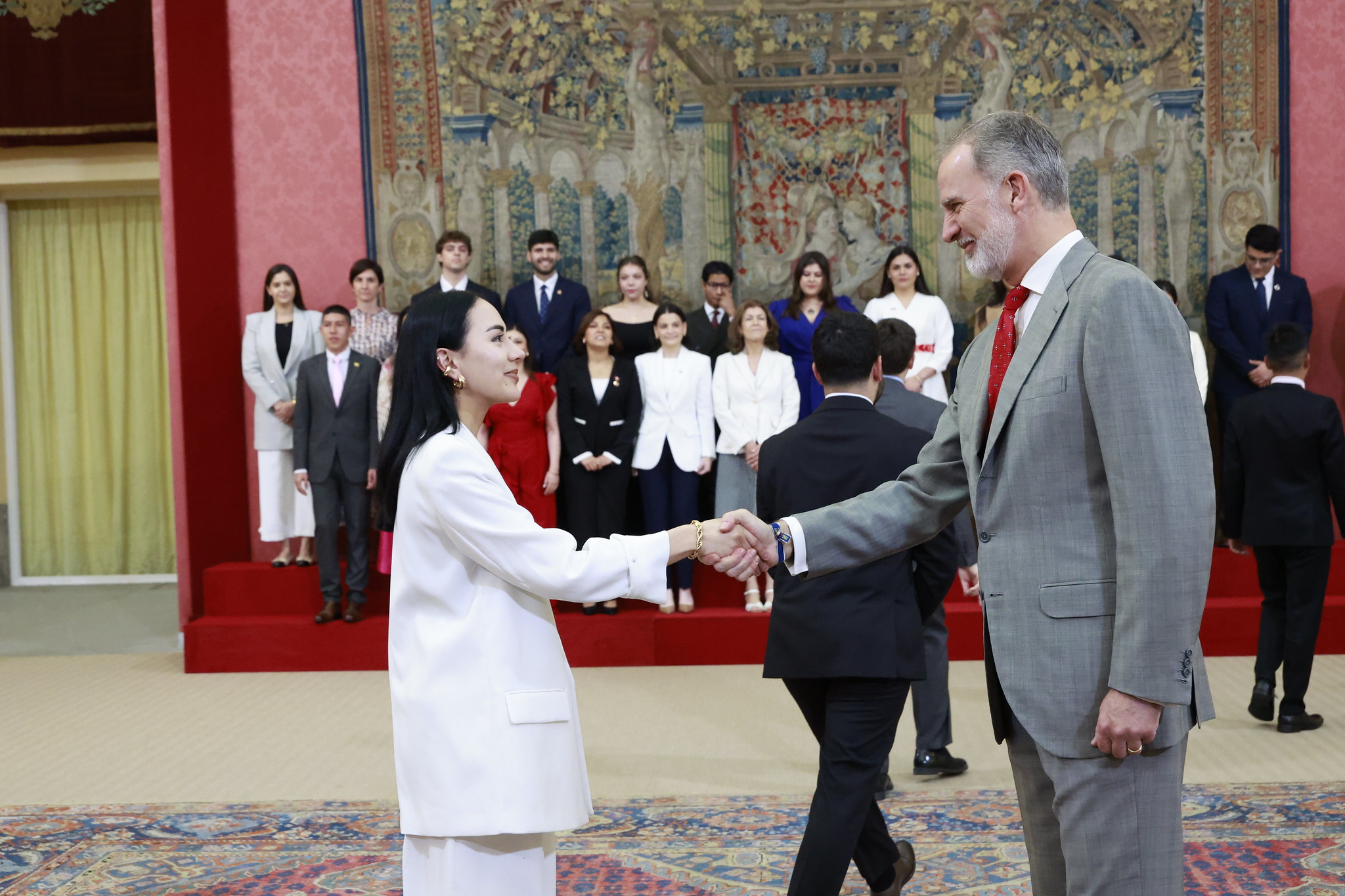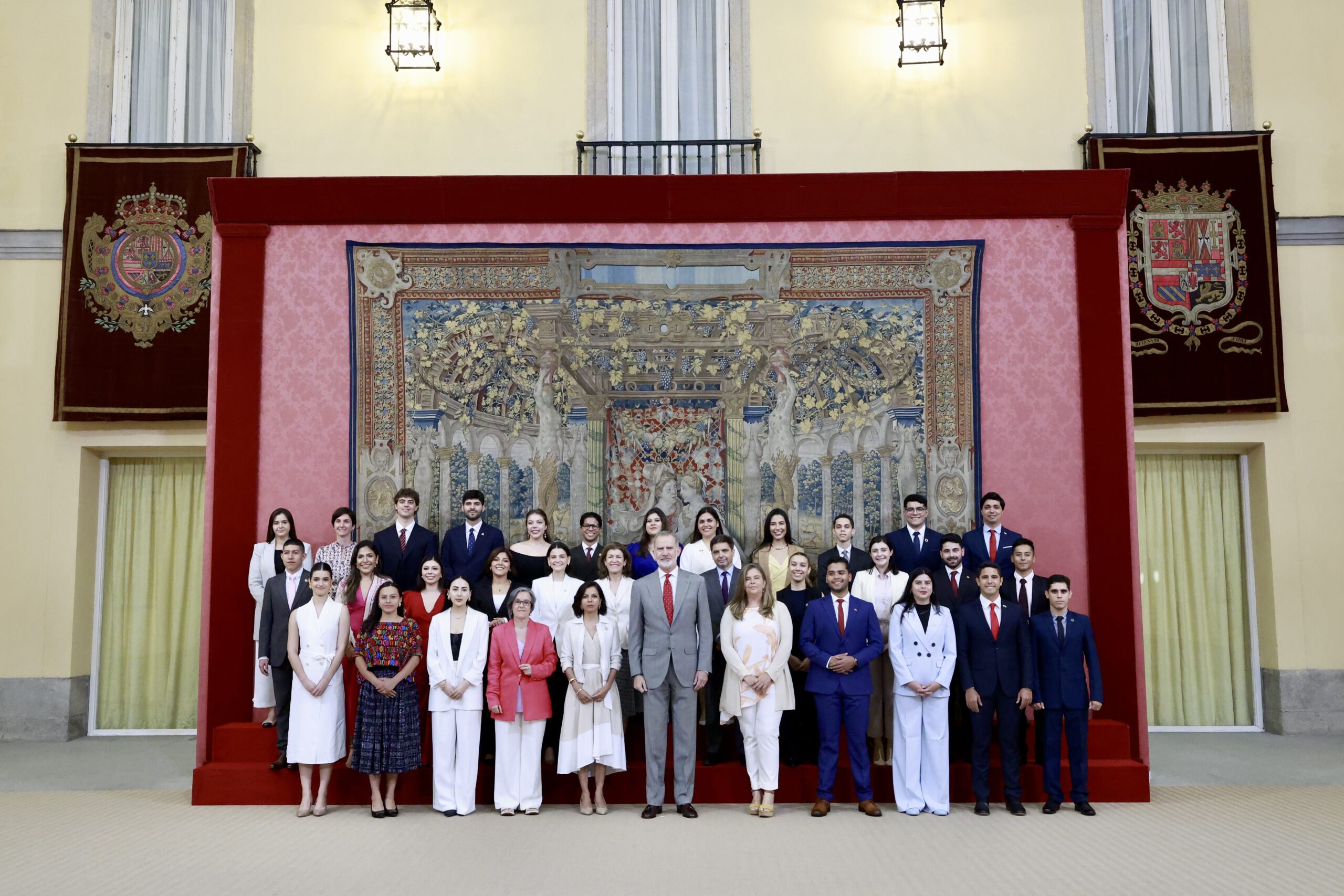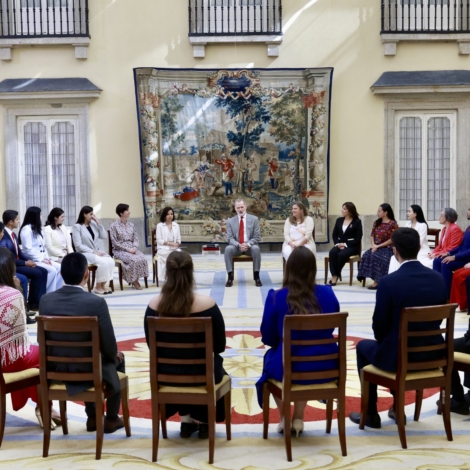On representation, responsibility, and sustainability in global cooperation
Walking into the Palacio de El Pardo for our audience with His Majesty King Felipe VI, 25 of us from across Ibero-America each felt the weight of representing not just ourselves, but our countries, our generation and our shared future.
I was the delegate from Ecuador, participating in the Jóvenes Líderes Iberoamericanos program alongside ‘young leaders’ from Latin America, Spain, and Portugal. The program’s agenda included visits to corporations, institutions, and policy centers, but it began with this audience that set the tone for everything that followed. What struck me most about the conversation was how the King spoke about us as the main characters in the story being written right now. We are the protagonists writing the narrative of the moment.

The author, Arianna Andino, meets King Felipe VI. Photo: Fundación Carolina
The weight of representation
Representation carries weight. We were, engineers, economists, lawyers and journalists from Mexico, Argentina, Colombia, Ecuador and all throughout Ibero-America, representing the diversity that global cooperation requires. When you have a seat at the table, you are speaking for more than yourself.
As an engineer from Ecuador, I realized I was representing a generation that will inherit climate change, resource scarcity, and technological disruption as challenges. The conversation made clear that global cooperation happens when young leaders build relationships that will outlast current political cycles and create the foundation for decades of collaboration.
Sustainability as a foundation
The conversation kept circling back to sustainability as a foundation, the pillar on which all other progress depends. However, we often approach sustainability as a checklist item rather than a foundational principle.
We design efficient systems without asking who benefits from that efficiency. We optimize for cost without accounting for environmental and social costs that someone else will pay. We solve technical problems without understanding the human systems they are embedded in.
Engineers need sustainability as a foundation because our work outlasts us. The bridge we design today will carry traffic for 50 years; the water system we implement will serve communities long after we move to other projects. If we don’t understand the ecological, social, and economic systems that our technical decisions affect, we are making choices about other people’s futures without their input.
Without abandoning technical rigor, we have to recognize that engineering is inherently social work. Every technical choice we make, what materials to use, which communities to serve first, how to balance priorities, reflects values and assumptions about what matters. Sustainability as a foundation means being conscious about those values.
The protagonists, not the audience
As young professionals, we are often told to wait our turn, gain more experience, defer to senior expertise. But the challenges we face, including climate change, technological disruption, global inequality… require new approaches, cross-border collaboration, and the kind of long-term thinking that comes naturally to people who will live with the consequences of today’s decisions for the next 50 years.
For the engineering community, being protagonists means taking responsibility not just for technical excellence, but for the broader implications of our work. When we design infrastructure that will last decades, are we considering the climate conditions it will face in 2050? When we develop technologies for global markets, are we building relationships with the international partners needed for responsible implementation?
Living up to the role
Walking out of the Palacio de El Pardo, I kept thinking about what it meant to be a protagonist in this story. The weeks ahead would include visits to high-level institutions, each offering different perspectives on how young leaders can build the future. But this conversation had already shifted something in how I understand my role as an engineer.
Our current work creates the conditions for future cooperation or conflict, equity or inequality, resilience or vulnerability. The future is being written through the choices we make today.

Photo: Fundación Carolina
About the Author
Arianna Andino is a Program Associate at Engineering for Change. She is also an alum of the E4C Fellowship, trained as an Industrial Engineer specializing in systems optimization, sustainability and engineering education.
She participated in the 2025 edition of the Jóvenes Líderes Iberoamericanos program organized by Fundación Carolina and Banco Santander.

